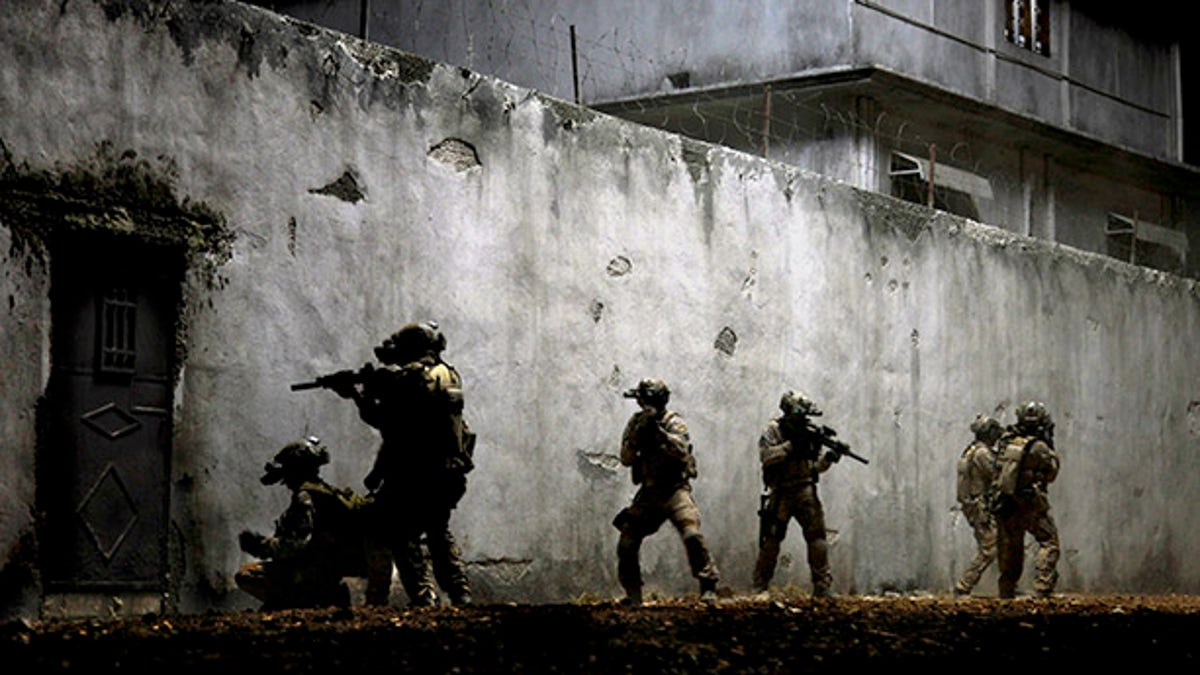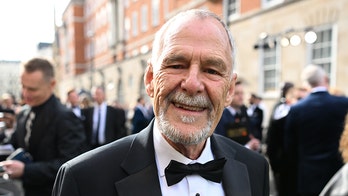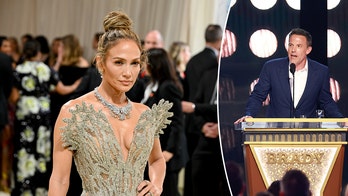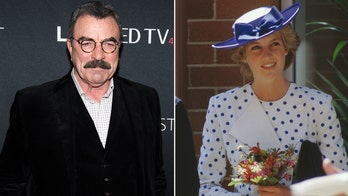
ZERO DARK THIRTY. (2012)
LOS ANGELES – If you thought "Hurt Locker" director Kathryn Bigelow’s highly-anticipated “Zero Dark Thirty,” centered on the hunt for and killing of Osama bin Laden, was going to be one big Obama lovefest, think again.
“It is the story of finding a very sharp needle in a very large haystack. Once bin Laden escaped from Afghanistan, he fenced himself in with a byzantine network that took years and years to unravel,” Bigelow said. “(The script) tracks all the minute steps, in a way that’s dramatic yet ... unsentimental, unsparing, and unsettling. This is a very raw account.”
In stark contrast to the recent Harvey Weinstein-produced “SEAL Team Six: The Raid on Osama bin Laden,” which aired just two days before the Presidential election and was perceived by some as political propaganda as it gave the President something of a starring role, Bigelow’s blockbuster basically ignores Obama completely. Instead, the forthcoming film focuses solely on the relentless work of CIA agents on the ground and the expertise and bravery of the Navy SEALs.
In fact, some critics have gone as far as to proclaim that the film portrays the President in a negative light, and disseminates false information to the public. Obama graces the screen just once throughout the entire 150-minute production in a scene that features agents watching a '60 Minutes' interview in which he asserts: “I have said repeatedly that America doesn’t torture and I’m going to make sure we don’t torture.”
“Zero Dark Thirty” shows American intelligence waterboarding potential terrorists in an attempt to attain crucial information.
“Putting it mildly, this is an extremely controversial subject. I wanted to try to capture the complexity of the situation, morally and psychologically. It’s not an aesthetic goal of the film to settle scores, or end the debate about torture’s efficacy – which is still ongoing, even within the community of people who advocated for it and implemented it,” said the screenwriter, Mark Boal. “But it was part of the story and we needed to include it. The goal was to portray the events vividly and to make them real for the audience.”
“Zero Dark Thirty” refrains from making any partisan political statements. Rather, it emphasizes the unrelenting desire and willingness of the American military and intelligence experts to put their own lives on the line to get the very dangerous job done. The story is told from the perspective of young CIA agent Maya (Jessica Chastain), based on a real-life operative.
“The public knows very little about what the unsung heroes in the intelligence community go through, which is as it has to be, but here you get a rare opportunity to have a first-hand look at the men and women at the heart of one of the most covert operations in history,” Bigelow remarked.
The decision made by the Oscar-winning director and her screenwriting cohort to spotlight on-the-ground Americans as opposed to high-ranking Capitol Hill officials has attracted praise from media critics.
“What a relief someone in Hollywood is making a film about America's true heroes – our fighting men and women – and not politicians in D.C.,” noted Dan Gainor, VP of Business and Culture at the Media Research Center. “Taking down our nation's top enemy is definitely something the CIA and the SEALS deserve massive credit for. It's about time that Hollywood did its part saying what all of us want to say: ‘Thank you!’”
And it seems “Zero Dark Thirty” has had to come a long, long way since Boal first started writing.
“It’s gone through two iterations. It began six years ago as a movie about the failure to capture bin Laden in Tora Bora. I spent a few years on that, researching and writing, and we were in pre-production of that film by 2011, with scouts in Romania,” Boal added. "Then, more or less out of the blue, bin Laden was killed, and that film became ancient history. So I had to start again."
"Zero Dark Thirty” opens in limited release on December 19 and nationwide on January 11.






